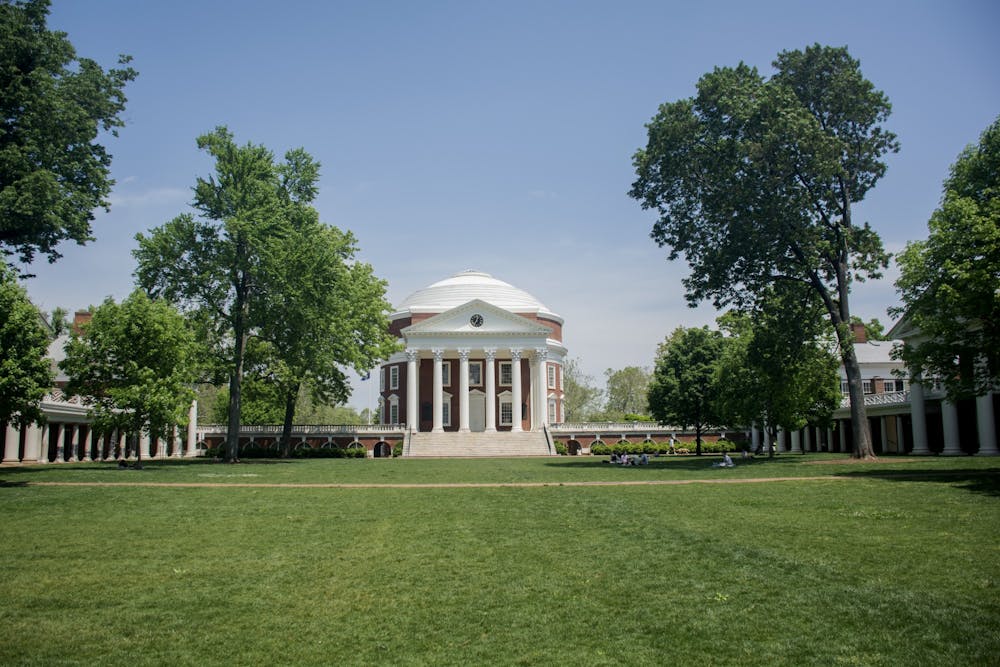Third-year College student Megan Sullivan emerged as a sem-finalist in the “Jeopardy! National College Championship” tournament finals, which aired Tuesday. Sullivan — a Classics major and English minor from Burke, Virginia — was one of 36 college and university students selected to compete.
In the beloved trivia game show, contestants are given general knowledge clues in the form of answers, and must phrase their responses in the form of questions. The college championship is reserved for full-time undergraduate students, and has aired almost every year since its inception in 1989.
Sullivan, who found out about her selection the day before her 21st birthday, had first applied about a year earlier in October 2020 and had undergone a series of application steps already, including a virtual exam and a mock audition. The tournament itself took place in October 2021 in Los Angeles and aired in February.
“I got the official call that I was selected and in five weeks, they [were] going to fly me out to California,” Sullivan said in an interview with The Cavalier Daily. “Five weeks [of] absolutely cramming, like nothing else. It was like a self-taught class that I couldn’t tell anyone about.”
Sullivan has been involved with competitive knowledge for most of her life, beginning in elementary school when her teacher introduced a school-wide mock Jeopardy competition. Sullivan competed in the mock game for three of the four years she attended the school, marking the beginning of her interest and participation in quiz competitions.
She began playing Quiz Bowl in middle school, continuing through high school, and first auditioned to compete on Jeopardy at twelve years old.
Although this has been a long-time goal and effort of her’s, Sullivan noted that she was grateful for the timing of her selection, in part because of the people she met through the process but also because of her own preparation and learning.
“I feel like this was a great time for it,” Sullivan said. “I also don’t think I would have performed as well when I was younger … It takes time to grow and to learn stuff.”
Initially trying to follow a strict studying schedule, Sullivan found that a more flexible approach worked for her. Her focus and strategy varied, including watching previous episodes and reading Jeopardy transcripts.
Sullivan had to train in more areas than just trivia, though — she also focused on buzzer strategy, reading a book on it and practicing reaction speed tests. The first candidate who activates their buzzer after a question is read is able to give the first response, and quick buzzer reflexes are often recognized as key to mastering the game by “Jeopardy!” pros.
“There’s so much theory on [buzzers] too,” Sullivan said. “I was reading a theory that if you play sports, you have to use hand-eye coordination, but if you do music, you should listen to the host voice.”
Sullivan also made an effort to study topics she was less familiar with or even disliked. She noted that although she had never had an affinity for science-related subjects, her Classics studies at the University ended up being of use even for STEM-field categories.
“I buckled down and looked at what types of science questions come up and then I realized that I actually know a lot of them from Classics, like for stuff like etymology, that’s just … know[ing] my Latin and Greek roots,” Sullivan said. “Or other stuff like astronomy comes up a lot and astronomy sounds intimidating, but Jeopardy! astronomy is a lot of constellation mythology, astronomy and history, which I feel comfortable with.”
For Sullivan, Classics represents a much broader foundation of knowledge than a study of Greek and Latin.
“I think that Classics is more than just language study,” Sullivan said. “It’s this enormous discipline where you can study anything with the context of the ancient world, like I’m learning about our history right now and politics, speeches, history and science. ... So being a Classics major really does teach you how to have an incredibly broad scope.”
For Sullivan, one of the biggest things she will take away from the experience is a recognition of her strength and growth — she is proud of herself for making it so far while managing a full-time courseload and overcome the nerves of standing on a national stage.
“I think for me, it made me realize that I am stronger at several things than I thought,” Sullivan said. “And now whenever I have homework, I’m like, well you did “Jeopardy!” once. Yeah, you can handle it.”
Sullivan also reflected on the growth and skills that she gained throughout the experience.
“It made me grow in a lot of skills, like speaking clearly in front of people… and keeping calm when I know that apparently millions of people are watching me,” Sullivan said. “And just how to prepare myself for something … It wasn’t like I could ask someone, ‘Hey, coach me for Jeopardy!’ I coached myself. And I’m really proud of that.”
The airing of the competition has brought University-wide attention to Sullivan, who said she’s been surprised at being recognized in public or by community members — she is also immensely grateful for the support from her friends and the community.
“One of my favorites has been U.Va. sports fans deciding that “Jeopardy!” is a form of sports,” Sullivan said. “I’m not athletic, but I love being competitive. And there’s a ridiculous amount of theory that goes into it too. So it’s fun to watch … I hope.”







